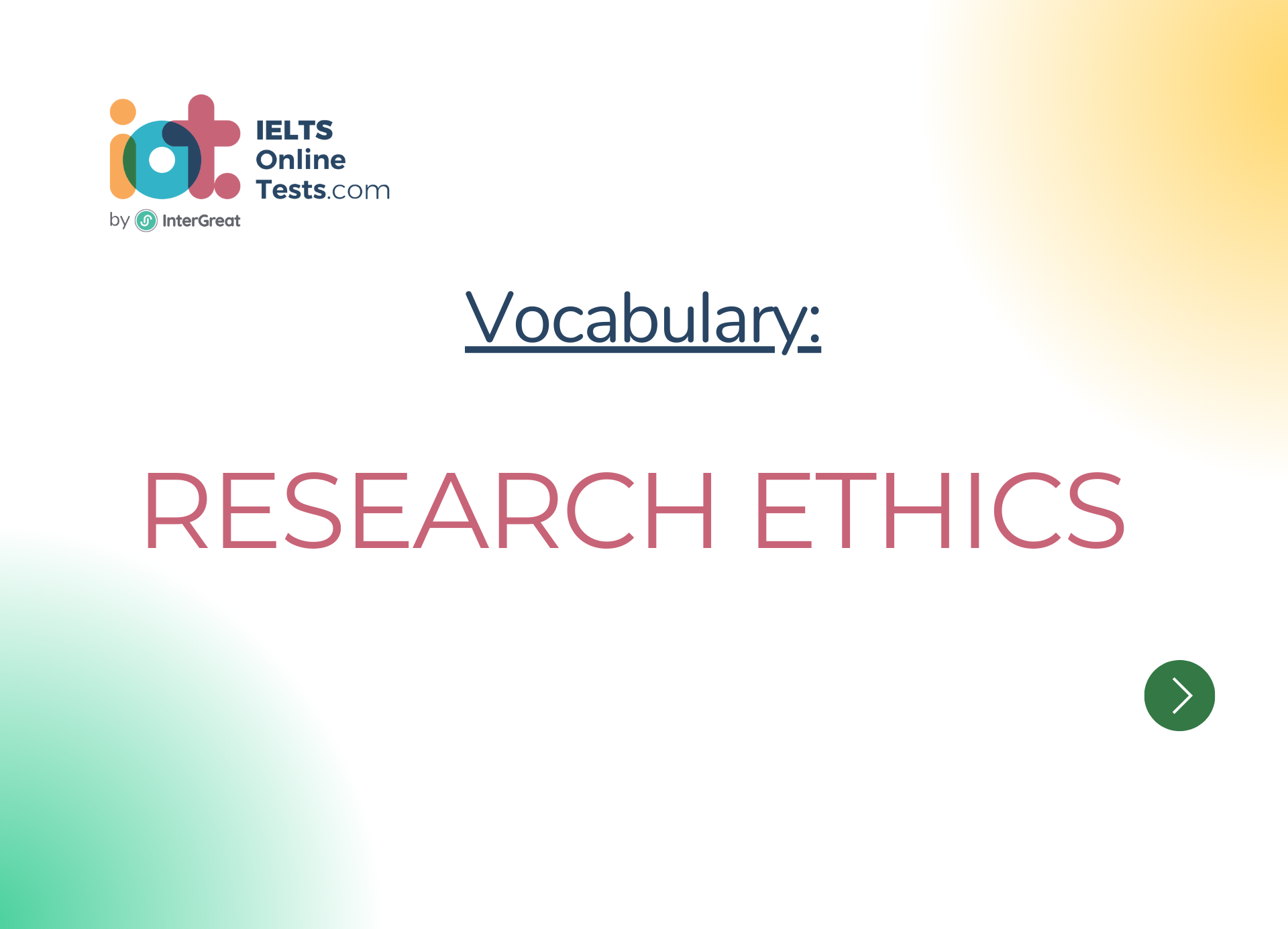
Research ethics
Research ethics is a critical aspect of any academic or scientific study, ensuring that research is conducted with integrity, respect for participants, and adherence to ethical principles. Here's a comprehensive list of vocabulary related to research ethics suitable for the IELTS band score range of 6.5-8.0:
Informed Consent:
Informed Consent: Participants' voluntary agreement to participate in a study after being fully informed about its purpose, procedures, and potential risks.
Confidentiality: Protecting participants' identities and personal information from being disclosed.
Research Oversight:
Institutional Review Board (IRB): An independent committee that reviews and approves research proposals to ensure ethical compliance.
Ethical Clearance: Formal approval granted by the IRB to conduct research.
Participant Protection:
Anonymity: Ensuring that participants' identities are not known to the researcher or anyone else.
De-identification: Removing any identifiable information from research data to protect participants' privacy.
Vulnerable Populations: Groups with diminished autonomy or the inability to provide fully informed consent (e.g., children, prisoners).
Minors: Individuals under the legal age of adulthood.
Coercion: Forcing or pressuring individuals to participate in research against their will.
Exploitation: Taking advantage of vulnerable populations for research purposes.
Research Integrity:
Plagiarism: Presenting someone else's ideas, work, or words as one's own without proper acknowledgment.
Data Fabrication: Falsifying research data or results.
Data Manipulation: Selectively changing or altering research data to obtain desired results.
Conflict of Interest: A situation in which researchers' personal interests may compromise the objectivity of the study.
Data Handling and Storage:
Data Security: Safeguarding research data from unauthorized access or loss.
Data Retention: Determining how long research data should be stored and maintained.
Data Disposal: Properly disposing of research data in a way that protects participants' confidentiality.
Research Misconduct:
Research Misconduct: Serious violations of research integrity, such as fabrication, falsification, or plagiarism.
Whistleblower: A person who reports research misconduct or unethical practices.
Ethical Guidelines:
Helsinki Declaration: Ethical principles for medical research involving human participants, established by the World Medical Association.
Belmont Report: Ethical principles and guidelines for research involving human subjects, issued by the United States National Commission for the Protection of Human Subjects of Biomedical and Behavioral Research.
Cross-Cultural Considerations:
Cultural Sensitivity: Awareness and respect for cultural differences when conducting research.
Inclusivity: Ensuring diverse representation and inclusion of various cultural groups in research.
Institutional Responsibility:
Research Compliance: Ensuring that research conducted within an institution adheres to ethical standards and regulations.
Publication Ethics:
Authorship: Giving appropriate credit to those who contributed to the research.
Duplicate Publication: Submitting the same research findings to multiple journals.
Informed Assent:
Informed Assent: The agreement of minors or individuals with limited decision-making capacity to participate in research.
By understanding and using these vocabulary words, you can demonstrate your knowledge of research ethics and ethical considerations in academic and scientific contexts. Remember to incorporate these terms when discussing research ethics in your writing or speaking tasks to showcase your language proficiency for the IELTS exam. Good luck!




